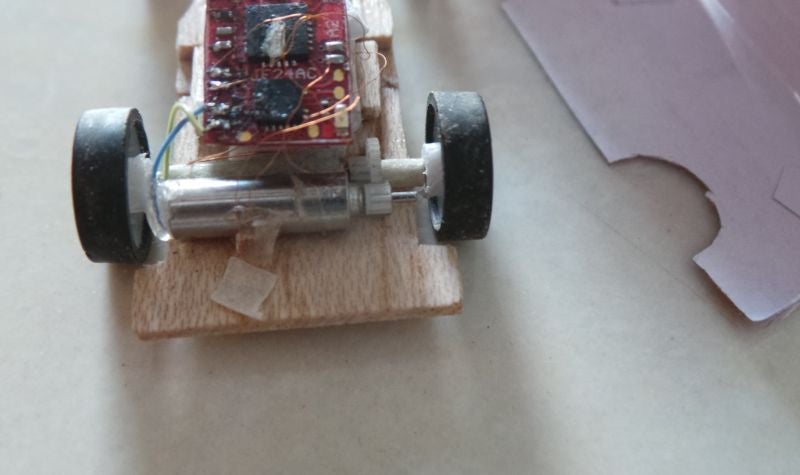
RC cars may be a great gift idea for your toddler. Toys like RC cars are safe and fun for children to learn more about cars. There are some things to keep in mind before buying one for your child. We'll discuss the recommended age ranges for these toys as well as the safety concerns that you should consider.
RC cars for toddlers
Although RC cars make great toys, toddlers should be careful when choosing a car. Toddlers have small fingers so they can easily get caught in small parts on remote-controlled vehicles. It is important to verify the age recommendation of the manufacturer. Also, don't be fooled by appearances: RC cars have sharp edges and pieces that can get in your child's eyes and mouth.

A remote-controlled car with steering wheel is a good option for toddlers. These toys are equipped with a small, remote controller that acts like a steering knob but is large enough for toddlers. Two buttons on the remote control allow you to control your car's speed or direction.
A variety of remote-control cars for toddlers are available. Some feature flashing lights or honking sounds to make them more interesting for toddlers. They can initiate these features by pressing a button on the remote-control car's controller. Some models have a spaceman figure that you can place in the driver's chair. This is a great option for toddlers who are just learning to use RC cars.
Recommended age range for RC cars for toddlers
RC cars make great toys and are a lot of fun. They are best for toddlers and children under three years old. These RC cars have advanced features that make them fun to drive. Some models can rotate 360° and can retract to a height that you set.
Toddlers can race and play with RC cars. A track can be built for them to race. It's a great way to organize parties or local races. Be sure to create a course that can accommodate multiple cars. A course too large may mean that your child is not able to control all the cars at once.

Remotely controlled RC cars are available for toddlers. However, they may not be as sturdy and fast as their older counterparts. When playing with RC car, it is important that toddlers are supervised by adults. Talk to your child and share safety tips.
FAQ
What are some great hobbies?
Your favorite hobbies are ones you enjoy. You'll be more motivated to do what you love. It will also be easier to find a reason to stop feeling tired or sick.
The hobbies we all love are gardening, painting and crafting, photography.
Volunteering could be a great option.
If you're looking to do something more adventurous, You might consider scuba diving or skydiving.
If you want to go further afield, there are plenty of unique ways to spend time in nature. These include caving.
How do I get started with my new hobby?
It is important to choose the type of hobby you want to start.
Once you have decided on your subject, passion is the key.
Understanding why you are interested in a hobby is important. This will help you find direction and a purpose.
Once you've chosen the hobby you would like to pursue you can start planning.
Consider the equipment that you will need.
You should consider whether or not you will need to take classes or attend seminars.
You must ensure you have enough room for your hobby.
Consider joining a club, or group. These groups can offer support and guidance.
Think about how much you'd need to spend on your hobby.
What are competitive hobbies, you ask?
There are many competitive sports, including running, swimming and cycling, as well as golfing, tennis and other activities.
They are usually enjoyed by people who enjoy being active, but also allow for social interaction.
You'll likely find others who are interested in your hobby if it involves physical activity.
This may mean joining a club or group where you meet regularly to play sports together.
Participating in group games, which involve playing alongside others, is another option.
These include netball (soccer), football (cricket), netball (basketball), hockey, baseball, volleyball and badminton.
There are many types and levels of competition.
Some competitions may be held for pure recreational purposes.
Others are meant to test competitors' skills.
Others are also designed to reward exceptional performance.
These cases result in prizes for the winners.
Other competitions are meant to test competitors' strength and stamina.
These are called endurance events.
For example, marathon races, triathlons, Ironman Triathlon, etc.
Before competing in these events, athletes train hard.
They will adhere to a strict training program that prepares them mentally as well as physically.
They might need to travel some distance during preparation.
It's important to remember that not all athletes compete in every type of event.
What are the chances of making money with my hobby?
You can make extra money by taking up hobbies.
If you're passionate enough about your hobby, you may decide to sell items related to it.
If you are a stamp collector, you might want to start a website that sells rare stamps.
You can make extra money without the hassle of buying and selling stamps.
Another option would be to create a YouTube channel where you talk about your hobby.
This allows for you to share your passions with others and can potentially generate additional income by providing premium content.
Statistics
- I am 100% biologically a woman (discover.hubpages.com)
- The intensity of the dialogue partners' bond at the end of the forty-five-minute vulnerability interaction was rated as closer than the closest relationship in the lives of 30 percent of similar students. (time.com)
- This 100% accurate personality-analyzing hobby quiz discovers your passion based on your characteristics. (quizexpo.com)
- A new survey by Pew Research Center of teens ages 13 to 17 finds that 36% of girls feel tense or nervous about their day every day; 23% of boys say the same. (pewresearch.org)
- Much of this decline reflects the fact that teens are less likely to work today than in the past; among employed teens, the amount of time spent working is not much different now than it was around 2005. (pewresearch.org)
External Links
How To
How to Learn a Musical Instrument
If you want to learn how to play music, there are many ways to do so. You could attend a school, read a book, get lessons from someone who plays a musical instrument, or look at videos online. If you are determined to learn on your own, these tips and tricks might be helpful.
-
Find something that interests your interest. If you don’t like any of these instruments, you can always try another. It would be hard to get into playing an instrument if you don't enjoy doing it.
-
Be patient. Learning anything new takes time. You don't have to learn everything in one go. Instead, practice every day.
-
Practice regularly. You can do this even when it is hard. This will ensure that you won't forget what you learned.
-
Pick a place where you can practice. It is best to find a quiet space where you will not disturb others. It is important to keep the room clear of distractions. Also, don't let loud music play near your home.
-
Have fun. Music is meant for enjoyment. It is important to have fun when practicing. It will make you more motivated to keep going.
-
Set goals. Set goals. You'll know exactly what you must achieve. You will never be ashamed to fail.
-
Keep track of your progress. Notate all of your achievements and failures. This will help you to improve your performance over time.
-
Pause. Sometimes it is enough to just stop and think. Take breaks to allow you to reflect on things.
-
Ask questions. Ask others if there are any doubts or questions regarding the instrument. They may be able help you.
-
Listening is the best way to learn. Many musicians learn by listening to the songs they love and then imitate them. This helps them understand basic concepts behind the song.
-
Read books. Watching videos or taking classes will not teach you as much as reading books. Books often contain information you can't find elsewhere.
-
Join a band. Playing with others will force you to practice more. Plus, you will meet people who share similar interests as yours.
-
Take a look at tutorials. Tutorials are short videos that explain various topics in great detail. Tutorials are short videos that focus on one part of the instrument. These tutorials will help you to understand the more difficult parts.
-
Try different methods. Some people prefer to learn via lectures while others prefer to read. Experiment until you find what works best for you.
-
Practice makes perfect. You don't become an expert overnight. It takes a lot of work to be able to perform well.
-
Get along with other musicians. Listening and learning from others can help you to learn faster.